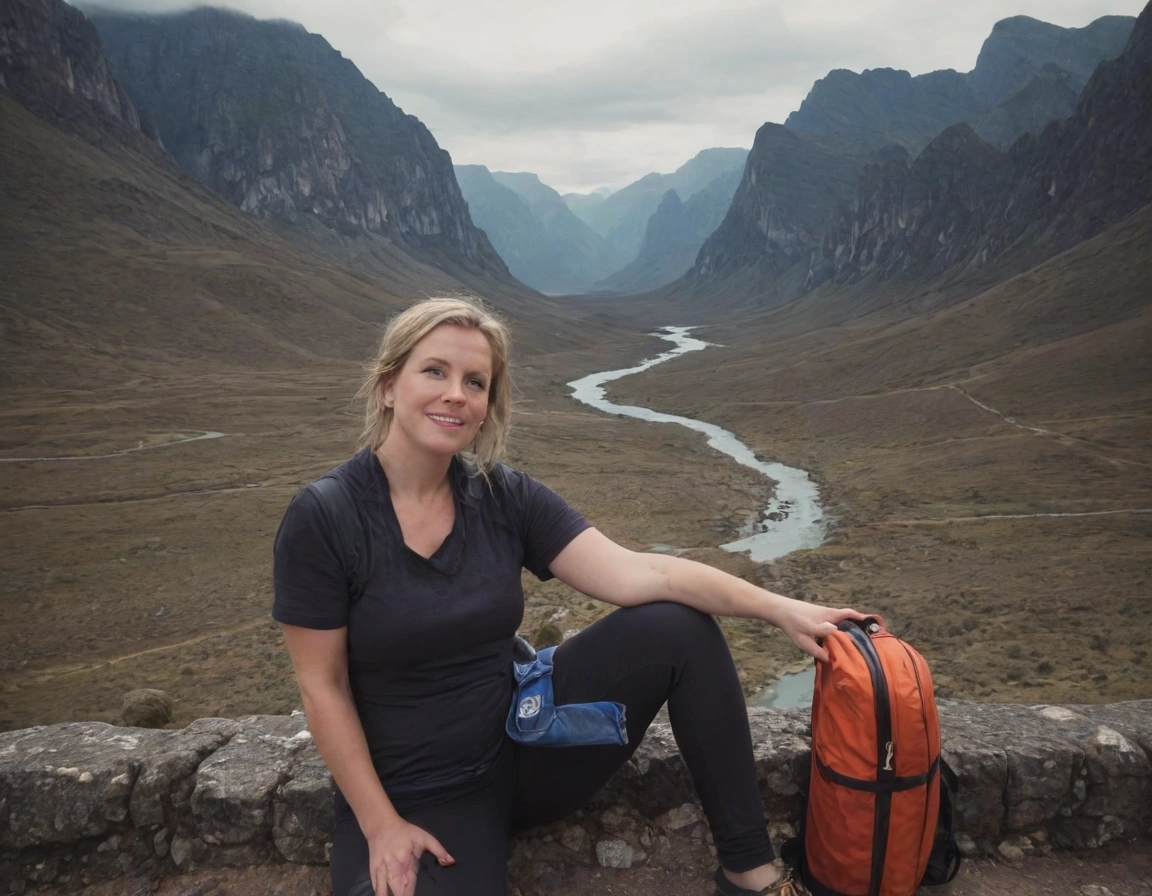How to travel the world on a budget is a dream shared by many, and it’s a dream that can become reality with careful planning and a bit of creativity. This guide offers a roadmap to navigating the globe without breaking the bank, encompassing budgeting strategies, destination selection, transportation options, affordable accommodation choices, and tips for experiencing the world on a shoestring.
From maximizing savings through side hustles and rewards programs to discovering hidden gems in popular destinations, this comprehensive guide provides practical advice and insights to help you turn your travel dreams into reality.
Finding Affordable Accommodation
Accommodation is often the largest expense when traveling. However, it doesn’t have to break the bank. By exploring diverse accommodation options beyond traditional hotels, you can significantly reduce your travel costs and experience a more authentic local culture.
Comparing Accommodation Options
Choosing the right accommodation type is crucial for your budget and travel experience. Here’s a comparison of popular options:
| Accommodation Type | Cost | Features | Pros | Cons |
|---|---|---|---|---|
| Hostels | $10-$40 per night | Shared rooms, common areas, and often breakfast included | Budget-friendly, social atmosphere, opportunities to meet fellow travelers | Limited privacy, and potential noise, may not be suitable for solo travelers or families |
| Guesthouses | $20-$80 per night | Private rooms, often with shared bathrooms, local charm | More privacy than hostels, often located in quiet areas, authentic experience | May lack amenities found in hotels, limited availability |
| Airbnb | $20-$200 per night | There is a wide variety of options, from private rooms to entire apartments, often with kitchens | Flexibility, often more spacious than hotels, local feel, can be cheaper than hotels | It may not be suitable for short stays, has the potential for scams, and can be expensive in popular destinations |
| Couchsurfing | Free | Stay with locals on their couch or spare room | Free accommodation, opportunity to experience local life, build connections | Requires trust and flexibility, may not be suitable for everyone, limited privacy |
| Hotels | $50-$500+ per night | Private rooms, amenities like pools, restaurants, and room service | Convenience, comfort, often located in central areas, reliable service | The most expensive option may feel impersonal and can be crowded |
Finding Deals and Discounts, How to travel the world on a budget
There are several ways to find affordable accommodation deals:
Book in advance: Booking your accommodation in advance, especially during peak season, can help you secure better rates and avoid last-minute price hikes.
Travel during the off-season: Traveling during the shoulder seasons (spring and fall) can significantly reduce accommodation costs, as demand is lower.
Use travel aggregators: Websites like Kayak, Expedia, and Booking.com compare prices from various accommodation providers, helping you find the best deals.
Look for discounts and promotions: Many accommodation providers offer discounts for students, seniors, or long-term stays.
Consider alternative accommodation options: Guesthouses, hostels, and Airbnb often offer more affordable options compared to traditional hotels.
Negotiate with accommodation providers: Don’t be afraid to negotiate with accommodation providers, especially if you’re staying for an extended period or booking during the off-season.
Sign up for loyalty programs: Many hotel chains and booking platforms offer loyalty programs that provide discounts and other perks for frequent travelers.
Use coupon codes: Look for coupon codes online or in travel magazines to get discounts on accommodation.
Check for local deals: Many local websites and newspapers advertise accommodation deals and discounts.
Consider staying outside the city center: Staying in a nearby town or suburb can often be significantly cheaper than staying in the city center.
Travel with a group: Splitting accommodation costs with friends or family can significantly reduce expenses.
Consider volunteering: Many organizations offer accommodation in exchange for volunteering work.
Look for free accommodation options: Couchsurfing, house-sitting, and work away offer opportunities to stay for free in exchange for services.
Experiencing the World on a Budget
Travel doesn’t have to be expensive. Planning and creativity allow you to explore the world without breaking the bank. There are numerous ways to experience diverse cultures, immerse yourself in new environments, and create unforgettable memories while staying within budget.
Free and Low-Cost Activities and Attractions
Free and low-cost activities are a great way to experience the local culture and save money. Many popular travel destinations offer a wide range of free or inexpensive attractions.
Museums and Art Galleries: Many museums and art galleries offer free admission days or hours, particularly on certain days of the week or during specific events. Additionally, some museums have free admission for students, seniors, or military members.
Parks and Gardens: Parks and gardens are often free to enter and provide a tranquil escape from the hustle and bustle of city life. They are also great places to relax, picnic, or enjoy a leisurely walk.
Walking Tours: Many cities offer free walking tours led by local guides. These tours are a great way to learn about a city’s history, culture, and architecture.
Local Markets: Visiting local markets is a great way to experience the local culture and sample local delicacies. Many markets offer fresh produce, artisanal goods, and street food at affordable prices.
Beaches and Waterfronts: Beaches and waterfronts are often free to access and offer a variety of activities, such as swimming, sunbathing, and walking.
Traveling During Off-Season or Shoulder Seasons
Traveling during the off-season or shoulder seasons can significantly reduce travel costs. During these periods, flights, accommodation, and tours are often cheaper, with fewer crowds.
Off-Season: The off-season is when a destination experiences the least tourist activity. It is typically when the weather is less favorable, such as during the winter months in destinations with warm climates.
Shoulder Seasons: The shoulder seasons are the periods between the peak season and the off-season. They offer a balance between lower prices and fewer crowds.
Traveling during the off-season or shoulder seasons can save you significant amounts of money. For example, a round-trip flight from New York to Paris during peak season can cost over $1,000, while a flight during the off-season can cost as little as $500.
Leveraging Local Markets and Street Food
Local markets and street food are often the most affordable dining options. They offer a variety of authentic dishes at reasonable prices, allowing you to experience the local cuisine without breaking the bank.
Local Markets: Markets are a great place to find fresh produce, regional delicacies, and street food at affordable prices. They offer various options, from fresh fruits and vegetables to traditional dishes and street snacks.
Street Food: Street food is a staple in many cultures and offers a quick and affordable way to enjoy local cuisine. Street vendors often provide various dishes, from savory snacks to sweet treats.
For example, a street food stall in Thailand might offer a delicious pad thai for just a few dollars, while a similar dish at a restaurant could cost significantly more.
Traveling Responsibly and Sustainably
As you embark on your budget-friendly journey around the world, it’s crucial to remember the impact your travels have on the communities and environments you visit. Responsible tourism is about minimizing your footprint and maximizing your positive contribution.
Minimizing Your Carbon Footprint
Traveling, even on a budget, inevitably contributes to carbon emissions. To minimize your impact, consider these practical tips:
Choose Sustainable Transportation: Opt for trains or buses over flights whenever possible. Trains are often more scenic and can be surprisingly affordable. Consider using public transportation or cycling within cities to avoid unnecessary car journeys.
Offset Your Emissions: Calculate your carbon footprint and consider offsetting it by investing in carbon-neutral projects. Many organizations offer carbon offset programs, allowing you to support renewable energy or reforestation initiatives.
Pack Light: A lighter suitcase means less fuel consumption during your travels. Pack strategically, prioritize multi-functional items, and leave unnecessary baggage behind.
Outcome Summary: How To Travel The World On A Budget

Traveling the world on a budget is not about sacrificing experiences but finding alternative ways to enjoy them. By embracing budget-friendly travel options, you can unlock a world of possibilities, explore diverse cultures, and create lasting memories without draining your bank account. This guide is a starting point, encouraging you to personalize your journey, adapt to your unique circumstances, and embark on a truly enriching travel adventure.
Expert Answers
How long does it take to save enough for a trip worldwide?
The time it takes to save depends on your desired travel style, length of trip, and spending habits. Setting a realistic savings goal and timeline is recommended based on your circumstances.
What are some must-have travel essentials for budget travelers?
Essential items include a comfortable backpack, travel-sized toiletries, a universal adapter, a first-aid kit, and a good travel guide.
Is it safe to travel alone on a budget?
Solo travel can be safe and rewarding. Research your destination, take necessary precautions, and be aware of your surroundings.
What are the best ways to stay connected while traveling on a budget?
Consider purchasing a local SIM card or a travel Wi-Fi hotspot for affordable internet access.
What are some tips for avoiding scams while traveling on a budget?
Be cautious of unsolicited offers, verify information with local authorities, and avoid carrying large amounts of cash.





